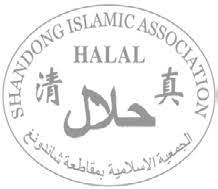
Finding halal food in China can be challenging, especially in a country where non-halal food is the norm.
However, with proper research, planning, and the right resources, you can enjoy a variety of halal food options while exploring the country.
This guide will provide you with practical tips and resources to make your search for halal food in China easier and more enjoyable.
Research Halal Food Options Online
The first step to finding halal food in China is to leverage online resources.
Several websites and apps are specifically designed to help Muslims locate halal food options in different cities across China.
These platforms provide reviews, ratings, and recommendations for halal restaurants and stores, along with details like menus, locations, and opening hours.
Here are some popular apps and websites to get started:
- HalalTrip: A travel app that helps you find halal restaurants, prayer spaces, and more.
- Zabihah: A global halal restaurant guide with user reviews and ratings.
- Muslim2China: A platform offering halal travel services, including restaurant recommendations.
Additionally, you can use general food delivery apps like Meituan or Ele.me.
These apps often list halal restaurants, and you can filter your search using the keyword “清真” (qīngzhēn), which means halal in Chinese.
Look for Halal Certification
When dining out or purchasing food, always check for halal certification.

Halal certification ensures that the food has been prepared and processed according to Islamic dietary laws.
In China, halal-certified products and restaurants often display logos from recognized organizations.
Some of the major halal certification bodies in China include:
- The China Islamic Association
- The Halal Food Certification Center
- The Muslim Food and Nutrition Association of China
Look for their logos on food packaging or at the entrance of restaurants.
If you’re unsure, don’t hesitate to ask the staff about the certification or food preparation process.
Check with Local Mosques
Local mosques are excellent resources for finding halal food in China.

Many mosques maintain lists of nearby halal restaurants and stores.
Additionally, the mosque community can provide personal recommendations and tips for finding halal food in the area.
Here are some prominent mosques in major cities where you can seek assistance:
- Niujie Mosque (Beijing): The oldest mosque in Beijing, located in a predominantly Muslim neighborhood with many halal restaurants.
- Huaisheng Mosque (Guangzhou): A historic mosque in Guangzhou with halal food options nearby.
- Id Kah Mosque (Kashgar): Located in Xinjiang, a region with a significant Muslim population and abundant halal food options.
Visiting mosques is also a great way to connect with the local Muslim community and learn more about their culture.
Visit Halal Food Markets
Halal food markets are a treasure trove of halal products, including meat, poultry, dairy, and spices.

These markets often feature stalls selling traditional halal dishes, allowing you to experience local Muslim culture while enjoying authentic food.
Some popular halal food markets in China include:
- Dongsi Halal Market (Beijing): A bustling market offering a wide range of halal products and snacks.
- Niu Jie Halal Market (Xi’an): Known for its vibrant atmosphere and variety of halal food options.
- Linxia Bazaar (Gansu): Located in a region with a large Muslim population, this market is famous for its traditional halal dishes.
Use Vegetarian and Seafood Options as Alternatives
If you’re unable to find halal-certified meat, consider opting for vegetarian or seafood dishes.
Many Chinese restaurants offer vegetarian meals that are free from non-halal ingredients.
Similarly, seafood is generally considered halal in Islamic dietary guidelines.
When ordering, confirm with the restaurant staff that the food is prepared separately from non-halal dishes.
Use translation apps like Google Translate or Pleco to communicate your dietary requirements.
You can also learn key phrases in Mandarin, such as:
- “这个是清真的吗?” (Zhège shì qīngzhēn de ma?) – “Is this halal?”
- “请不要用猪肉。” (Qǐng bùyào yòng zhūròu.) – “Please do not use pork.”
Explore Halal Food Delivery Options
Food delivery apps like Meituan and Ele.me are widely used in China and can be a convenient way to find halal food.
To search for halal options, use the keyword “清真” (qīngzhēn).
These apps often include user reviews and photos, helping you make informed choices.
Be Aware of Cross-Contamination Risks
While halal certification ensures compliance with Islamic dietary laws, cross-contamination can still occur in some restaurants.
To minimize this risk:
- Choose restaurants that explicitly advertise themselves as halal.
- Ask the staff about their food preparation practices.
- Avoid buffets or shared cooking spaces where non-halal food is prepared.
Additional Tips for Finding Halal Food in China
- Plan Ahead: Research halal food options in your destination city before your trip.
- Join Online Communities: Platforms like Facebook groups or forums for Muslim travelers in China can provide valuable recommendations.
- Explore Muslim-Majority Regions: Cities like Xi’an, Urumqi, and Kashgar have significant Muslim populations and abundant halal food options.
Conclusion
Finding halal food in China may require some effort, but it is entirely possible with the right tools and resources.
By using online platforms, looking for halal certification, visiting mosques and halal markets, and exploring vegetarian or seafood options, you can enjoy a variety of halal meals while traveling in China.
For more information, check out these helpful resources:
With proper planning, you can experience the rich culinary diversity of China while adhering to your dietary requirements. Happy travels!


